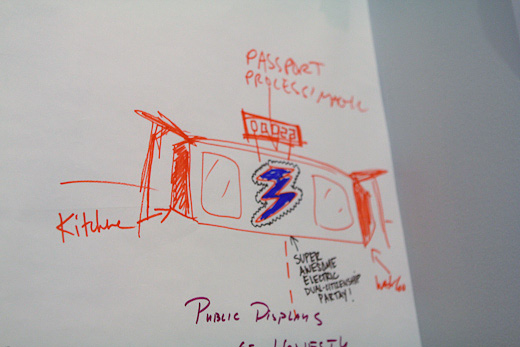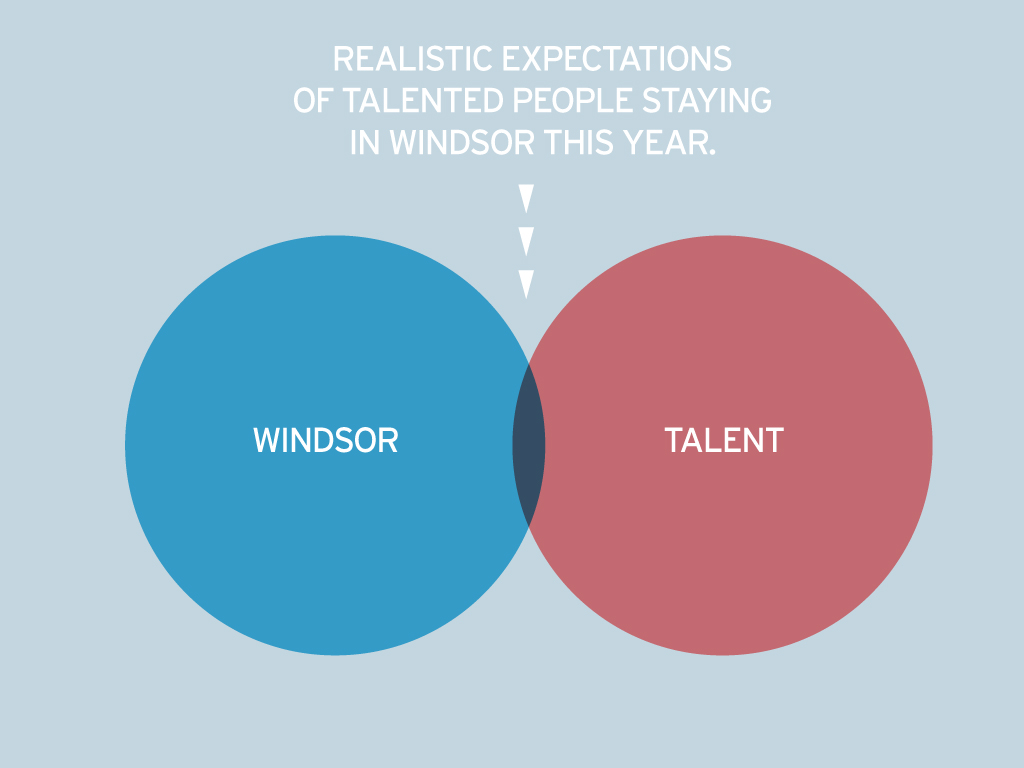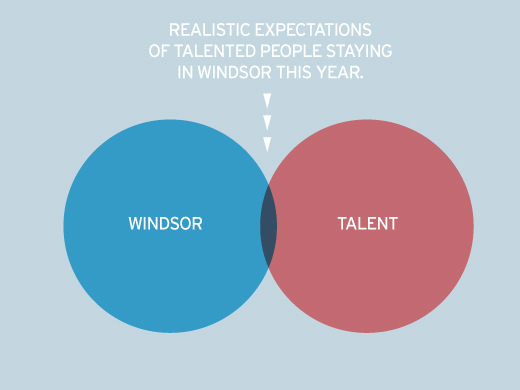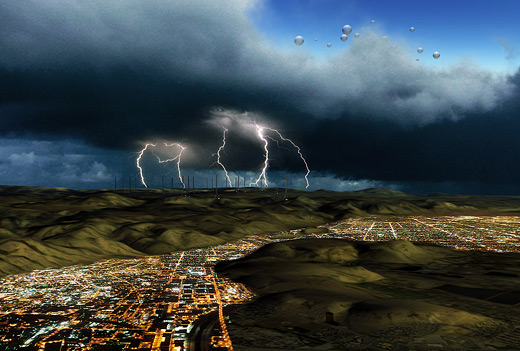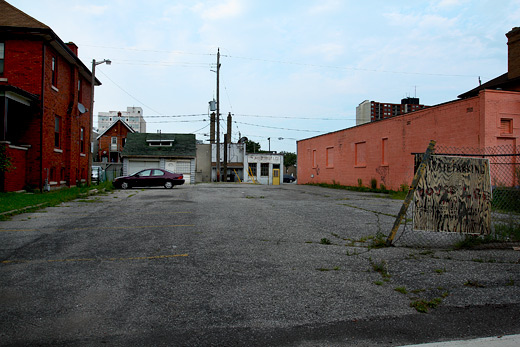
We’ve updated our imaginary campaign post to reflect some recent (positive) changes:
Our projects try to work around the realities that we encounter in Windsor on a daily basis. We address these realities creatively, and so the ways in which we address them don’t always translate to solutions. We usually try to suggest the change we’d like to see, albeit on a small scale. So, in continuing with this work, we offer the following:
We’re little less than 3 months away from the 2010 municipal elections here in Windsor. We’re not sure what to make of all the candidates entirely at this point, though it’s encouraging to see so many people entering the process.
It’s essentially a given that we’ll have the same mayor for a third term (or maybe not?), but we’ll likely see a number of new councillors. This is, in large part, due to the new 10 Ward system along with promises from councillors to not run again.
In hopes of imaging a greater city, we’d like to propose the following platform. It has gaps, it’s biased, it’s potentially unfundable, but it’s a list of ideas that we think could make Windsor a better place to live:
- Have at least two open-air city council meetings at Charles Clark Square, encourage a large audience, showcase democracy in action.
- Find a private partner and retrofit the Armouries tomorrow: get the WSO their permanent venue, renovate smaller spaces for artist studios, and keep larger rooms for small theatre performances.
- Sort out the Capitol Theatre appropriately. Clear the way to make it easier for WIFF to do more screenings, for Artcite to stay put (if they want to), for community theatre groups to do more performances, and to give Media City a consistent and reliable venue.
- Partner with the University to put a large multi-department Faculty of Arts and Social Sciences building in that parking lot across from the AGW and the downtown bus depot.
- Raise the cost of keeping buildings vacant. Do this immediately.
Encourage small businesses to locate downtown by offering free-rent for the first 6 months they’re in business.It didn’t take long — some folks picked up on that idea. Offer rent at 50% for the following 6 months if the business hires to 2 of more employees in the first 6 months.- Connect Transit Windsor with Tecumseh and the county with express buses, and do a better job at integrating with Detroit, get aggressive with promoting the use of public transit for everyday commutes.
- Commit to planting more trees on those barren stretches of sidewalks. Who wants to walk next to 4 lanes of traffic in the baking sun?
- Get bikes lanes in that make sense, ask the everyday riders where they go and how they like to get there, cross-reference that information with new public transit plans to make it easy to bike short commutes and dead simple to connect to the transit system for longer ones.
- Initiate an aggressive campaign to retain talent that graduates from the University and St. Clair. It’s unacceptable to sit idly by as our best and brightest move to bigger cities. Short-term subsidies to start a business fresh out of school, 6 months of free studio / rehearsal space for artists, musicians, and performers. Tell the world that we are doing this.
- Empower and fund people at the city like Jim Yanchula to act on their ideas.
- Give the Cultural Affairs Office the resources to do good things and help that office to understand the needs of the arts and cultural community.
- Commit to acting on Community Improvement Plans with an actionable to-do list over the 4-year term.
- Create an international competition to design gateways for our city (at the border and from the 401 at the least), then make sure there’s money to actually build these gateways. Advertisements should not be allowed.
- Start an innovation prize by partnering with Essex County and appropriate Economic Development entities to solve large problems and reward real innovation happening here.
- Convert 30% of riverfront and other key city-owned spaces to naturalized areas.
- Make the deep and rich histories of this region a part of everyday life — provide artists, community leaders, local historians, and elders resources to demarcate small and large historical occurrences.
- Own and embrace that we are an international city with an unbelievable wealth of multi-cultural communities.
If you’re running for council, please steal these ideas.

